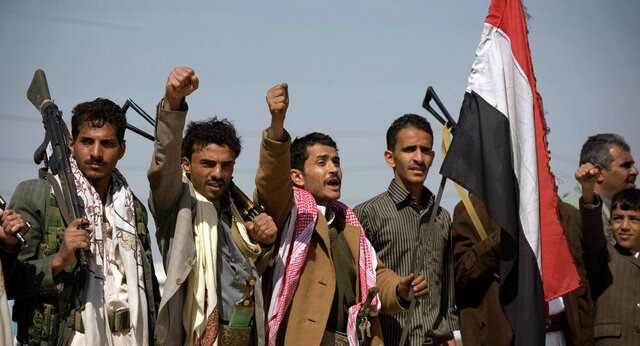Morteza Abedini, in an interview with the website of the Strategic Council on Foreign Relations, referred to the US decision to include Yemeni Ansarollah in the list, noted: In talks between Ali Abdullah Saleh and his advocates in Riyadh and the agreement they signed that led to the resignation of Ali Abdullah Saleh, a congress aimed at the national dialogue was envisaged and the decision was made to form a congress including all Yemeni groups.
He added: Several Yemeni groups were not present in the Riyadh agreements, the most important and the most effective of which was Ansarollah. Without mentioning the name of the group at that gathering, it was anticipated that all the influential Yemeni groups should be present when the congress is convened. Without mentioning the names of the Houthis and Ansarollah, by saying the “influential Yemeni groups” they meant precisely that group; because all the internal and external parties knew that Ansarollah is an effective Yemeni force, and this has been an issue that they have acknowledged in the past.
The expert of Yemeni developments said: At the same time, when US officials were asked why they agreed with the group’s participation in the Yemeni talks, does not the group chant ‘Death to America’ and ‘Death to Israel’; their answer was that they are part of the Yemeni people anyway, and we do not pay attention to their slogans, while they have not endangered our interests so far!
Labeling Ansarollah as Terrorist; Trump administration’s want
Abedini said that the Americans at that time recognized the effective role of Ansarollah in Yemen and also believed that they could work with them, adding: The decision to put Ansarollah on the list of the so-called terrorist groups was made during the Trump administration and in previous governments, there was no such discussion at all. Even when a missile was fired at an American ship, we did not notice a very serious reaction from the Americans.
Contradictory positions of Saudi Arabia, Bahrain, and the UAE
Referring to the crimes committed by the Saudi coalition in Yemen, the diplomat added: Foreign Ministry officials in some countries in the region, such as the UAE, Bahrain and Saudi Arabia, have explicitly stated that they are very pleased with the US move and have expressed the hope that it will lead to bringing the group back to the negotiating table, while those positions are in clear contradiction.
He explained: If they are terrorists, then what does it mean to negotiate with the terrorists! This is one of the biggest drawbacks of the American officials. Do the Americans and the countries in the region which are operating under the name of the Arab Coalition, which is not very well-founded, negotiate with the terrorists!? They have to answer this question.
Regarding the most important consequences of this US measure, the analyst of the regional affairs said: When the US blacklists Ansarollah and calls them terrorists, humanitarian aid to the people of that country will be affected. What is the task of the international organizations operating in the geographical area of Ansarollah? What the UN, which has an office in Sanaa, and the UN Secretary-General, with a representative there, should do?
Trump’s latest efforts to create problems in the region
Referring to Ansarollah’s rise to power in recent months, the field developments that favored them, as well as the repeated breakdowns of the Saudi-led coalition in the region, Abedini said: Trump and his group wanted to take action in the final days of their term to create problems for the next US administration and even regional countries and leave an impact on the course of developments. At the same time, it is not clear how they want to resolve those contradictions.
The former Iranian charge d’affaires to Sanaa added: This move by the United States will make the Yemeni negotiation process more difficult and complicated. When the United States, as a member of the United Nations and the Security Council, puts Ansarollah on the terrorist list, how does it expect the parties to sit down and negotiate? In addition, it complicates the process of helping the Yemeni people. In this case, connections of the civil society organizations that provide medical and non-medical services with this group is brought under question.
Abedini, meanwhile, stressed the impact of the US move on Ansarollah’s victories in the military and political battle in Yemen, adding: This move will definitely not be effective in weakening Ansarollah on the ground. Incidentally, we may see the strengthening of the power of this group. In fact, with the US administration’s approach, it may boost the morale of the forces on the ground.
He added that the move would not in any way weaken Ansarollah militarily, although it would make the political process in Yemen more difficult for Martin Griffiths, the UN Special Envoy for Yemen.










0 Comments